Priest urges nations to improve migrant rescues
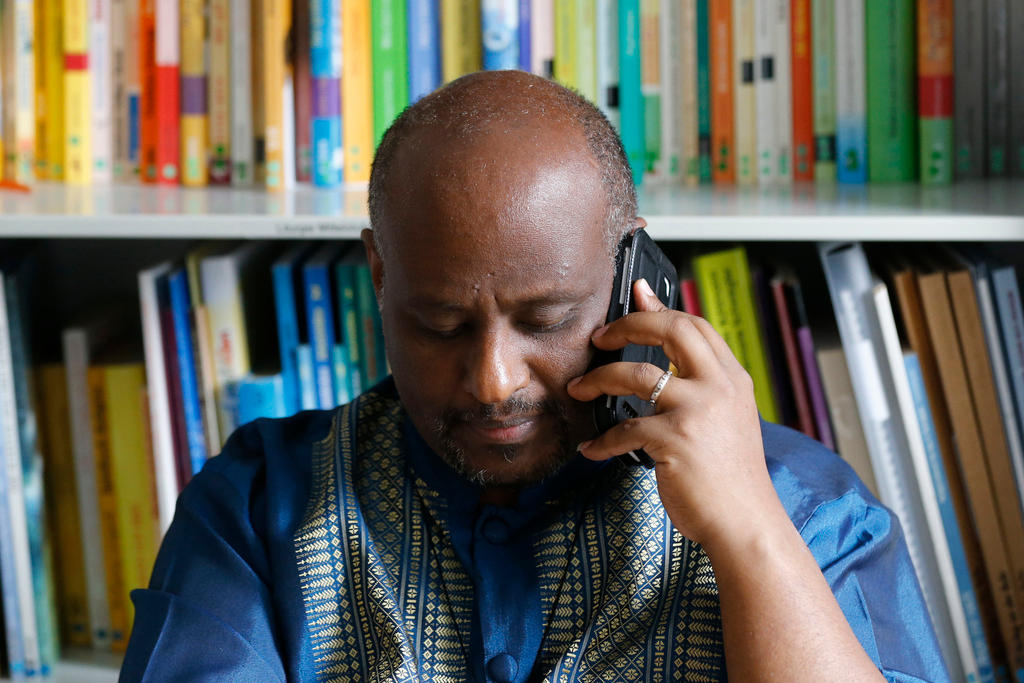
An Eritrean Catholic priest living in Switzerland says his efforts to save migrants’ lives show the need for nations to rescue more people trying to reach Europe through the Mediterranean.
Nominated for the 2015 Nobel Peace Prize for his life-saving work, Mussie Zerai is now under investigation in Italy on suspicion of abetting illegal immigration. He said in a statement External linkthat the Trapani public prosecutor’s office informed him of the investigation on August 7 and he was innocent of any wrongdoing.
In an interview with swissinfo.ch, Zerai denounced the investigation as “a denigrating campaign” and called on European nations to assume their responsibilities to welcome and save the lives of thousands who are desperately fleeing wars, conflicts and persecution. Without nations doing enough to help migrants, he said, it is left to non-governmental organisations to shoulder these responsibilities.
“It’s totally contradictory to attack the humanitarian organisations to fight illegal immigration. It’s like protesting against diseases by taking it out on the doctors,” Zerai said. “Instead we should tackle the causes of the disease (illegal immigration), which make these people desperate enough to risk their lives at sea.”
Helping others like him
Zerai fled the isolated and impoverished military regime of Eritrea for Italy alone at the age of 16 and later became a priest living in Switzerland. Eritreans make up the largest single nationality among asylum seekers in Switzerland, which has recently tightened its procedures for handling their requests.
Eritrea and Ethiopia feuded over their border since Eritrea gained independence in 1993 after a 30-year guerrilla war. The United Nations kept peacekeepers there for eight years under a 2000 peace agreement that ended a 2 1/2-year border war in which at least 70,000 people died.
After his phone number was passed among migrants, the Catholic priest began receiving distress calls and relaying the coordinates of the stricken boats to the coast guard in Italy and Malta. Since 2003, his emergency call center has been a lifeline for thousands of Europe-bound migrants seeking a new life.
The investigation into alleged illegal immigration apparently focuses on the roles played in migrant rescues by privately-funded NGOs. Authorities have seized a boat run by a German NGO over charges of having direct contact with human traffickers off the coast of Libya.
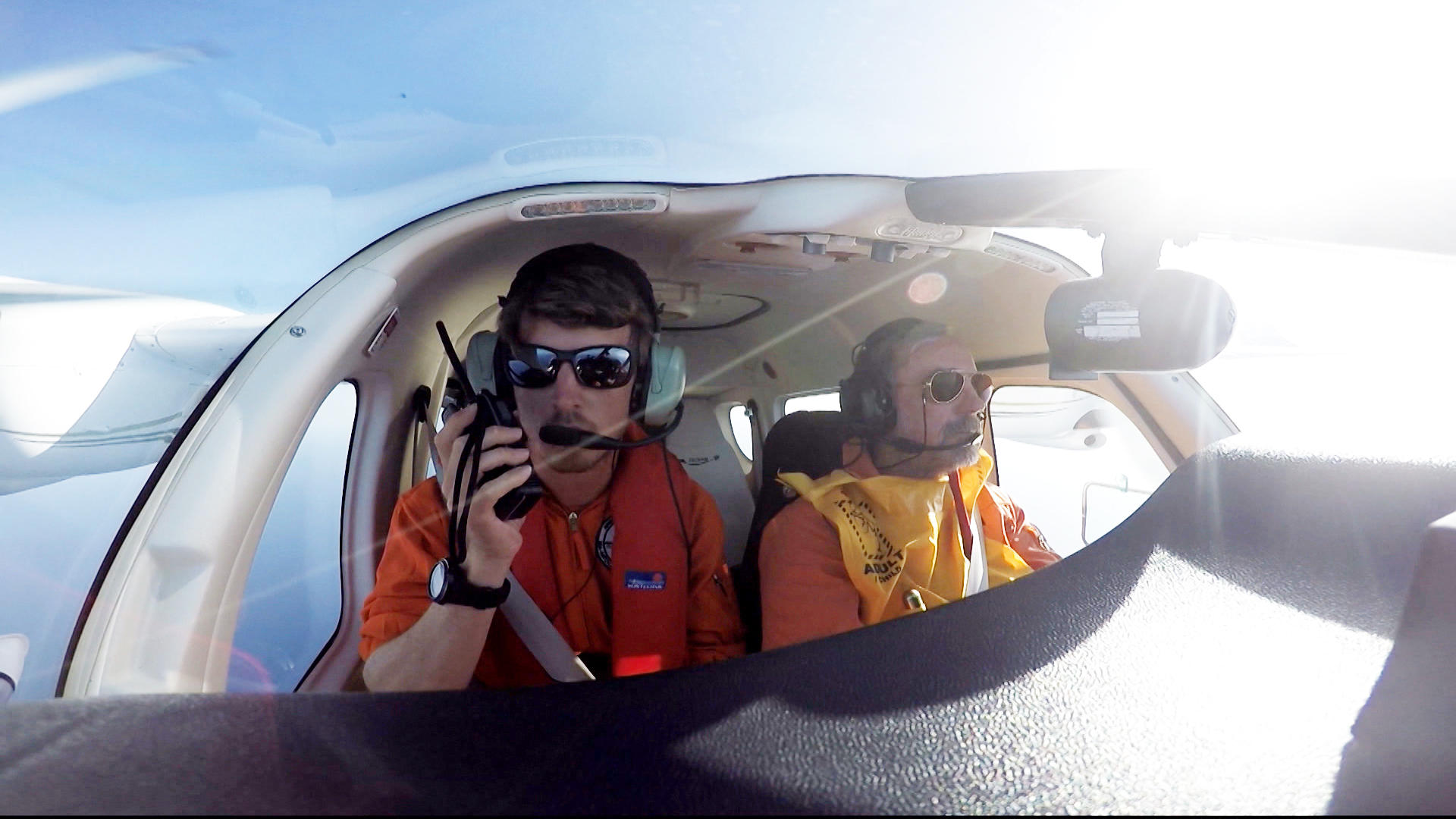
More
Flying over the Mediterranean in rescue missions
A problem for nations
The investigation opened in November 2016 led to the recent seizure of a boat run by German NGO Jugend RettetExternal link, which is accused of having had direct contact with traffickers off the coast of Libya.
Zerai, who lives in the Catholic parish of Erlinsbach, in the canton of Solothurn, says he has never had direct contacts with the German NGO nor been part of any secret conversations with NGOs as some newspapers have reported.
“Unfortunately, for months, a media and political campaign has been launched against NGOs and all those who manifest a form of solidarity with migrants and refugees seeking to reach Europe. It is a way of weakening humanitarian action,” he said.
The Office of the Attorney General of Switzerland told swissinfo.ch there are no criminal proceedings in Switzerland directed at Zerai and they have not received any requests for assistance with the Italian investigation.
“NGOs exist to help those in need. Of course, their boats do not have to be taxis to bring migrants to Europe,” he said. “The NGOs have simply filled a void left by the state. … The lack of solidarity among European states, including in sharing responsibility and managing migratory flows, affects the desperately poor. Saving migrants in the Mediterranean is the task of states, not of NGOs.”
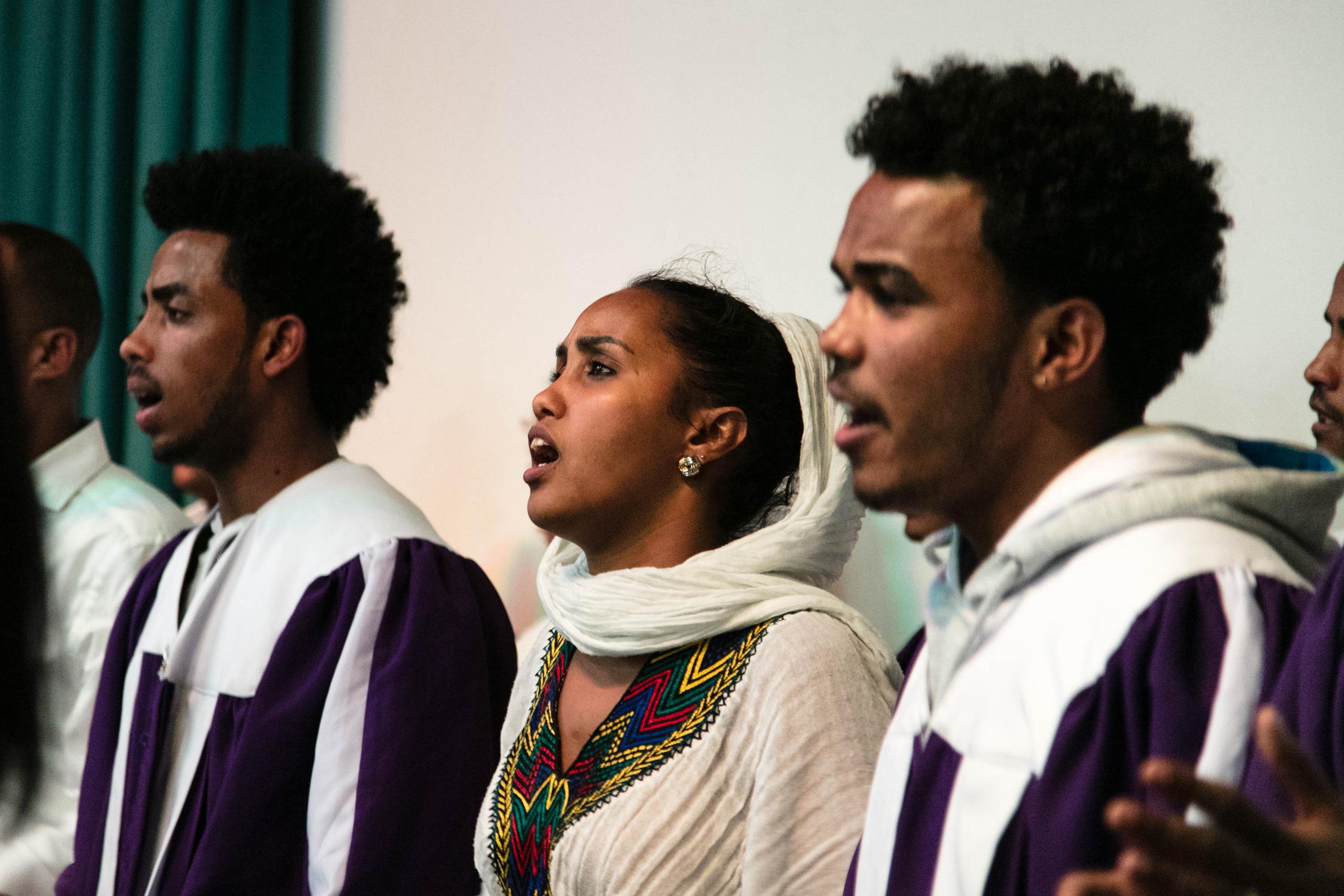
More
Singing prayers

In compliance with the JTI standards
More: SWI swissinfo.ch certified by the Journalism Trust Initiative
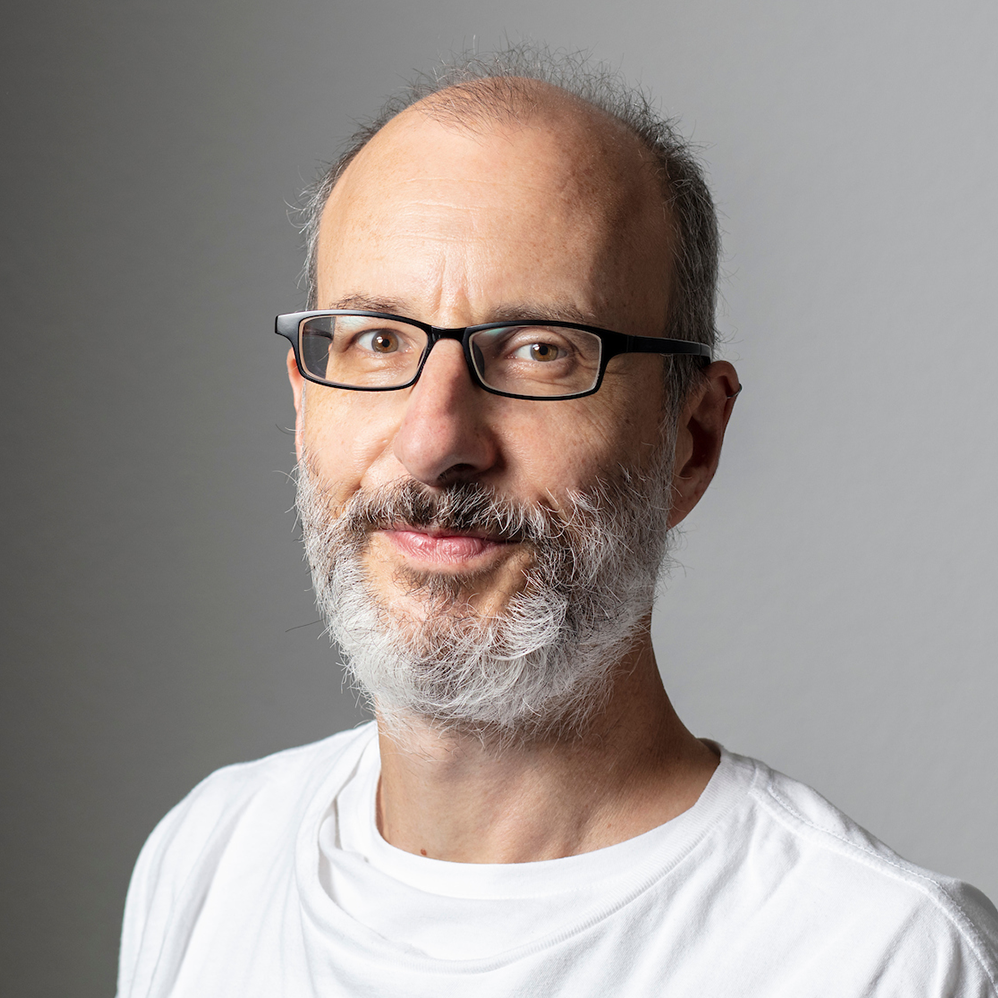
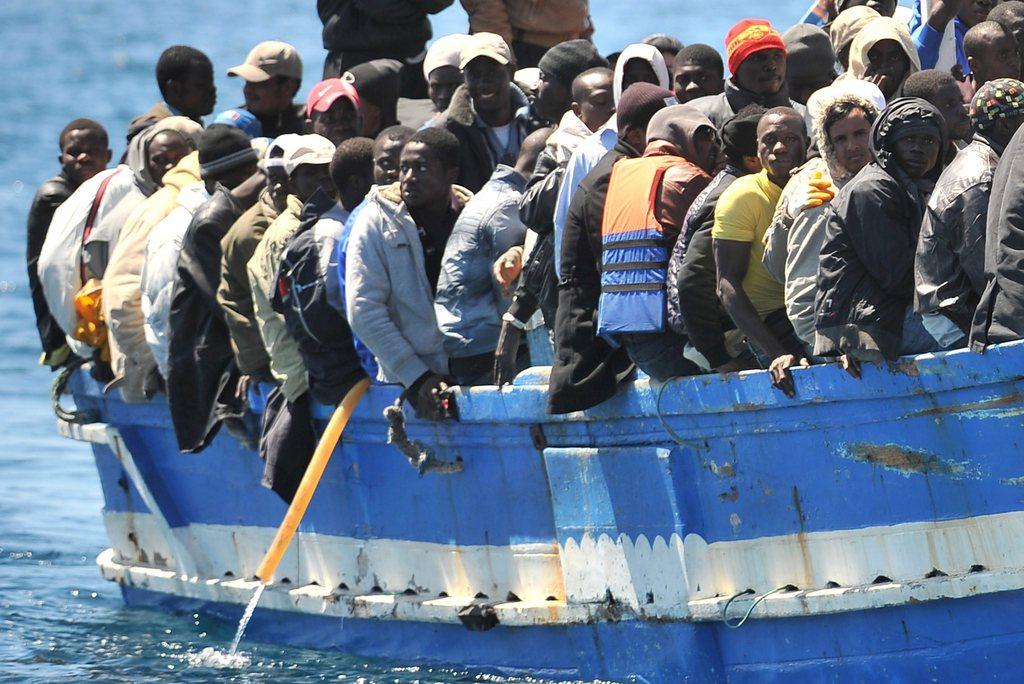
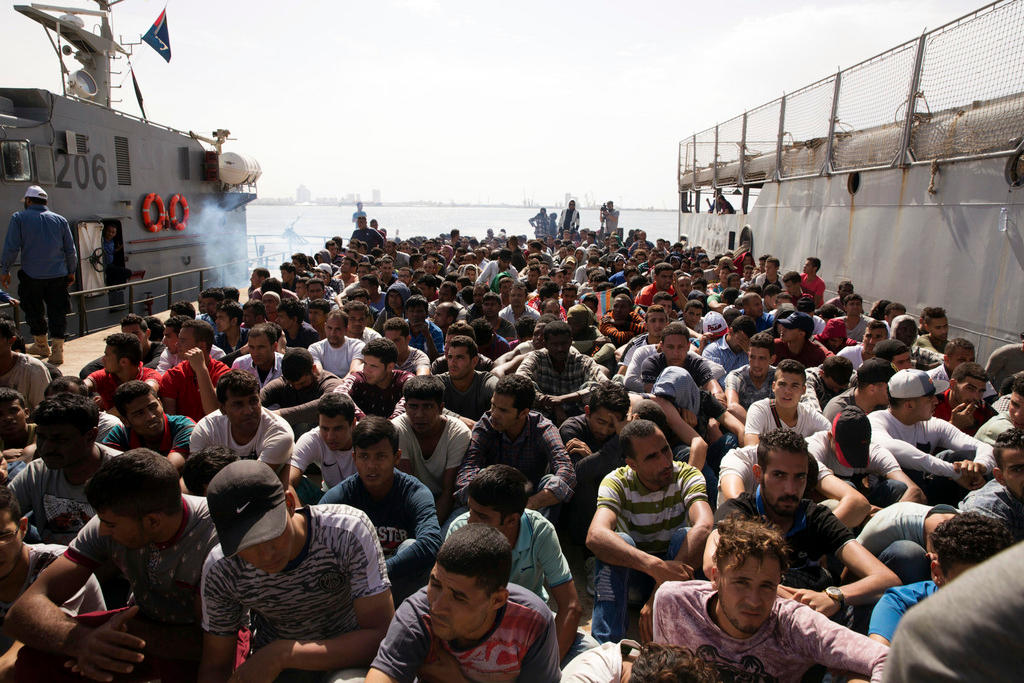
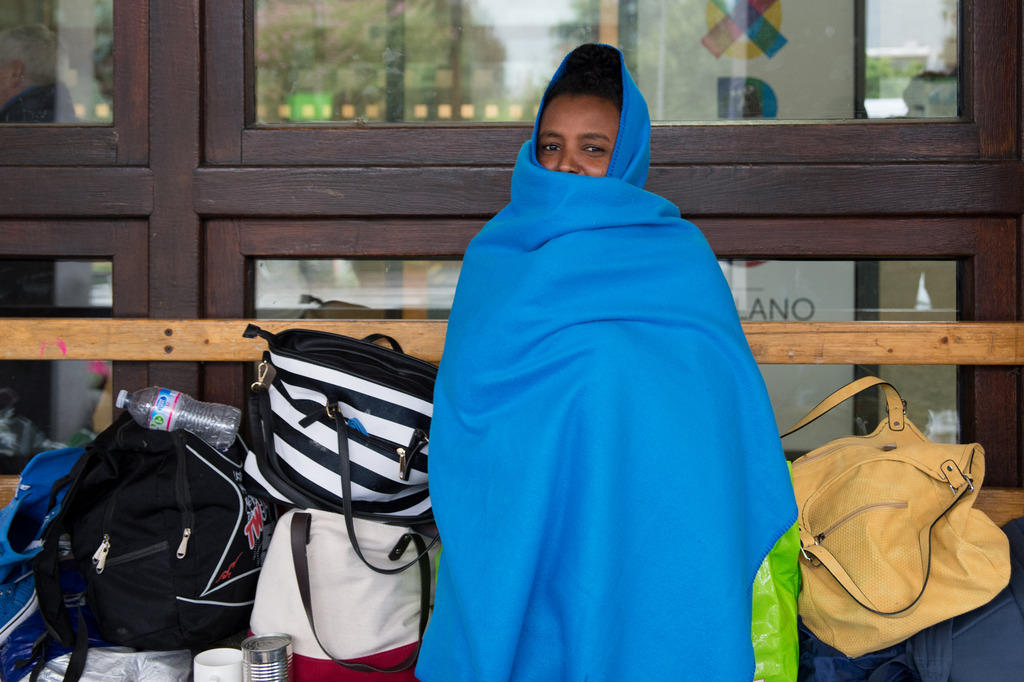
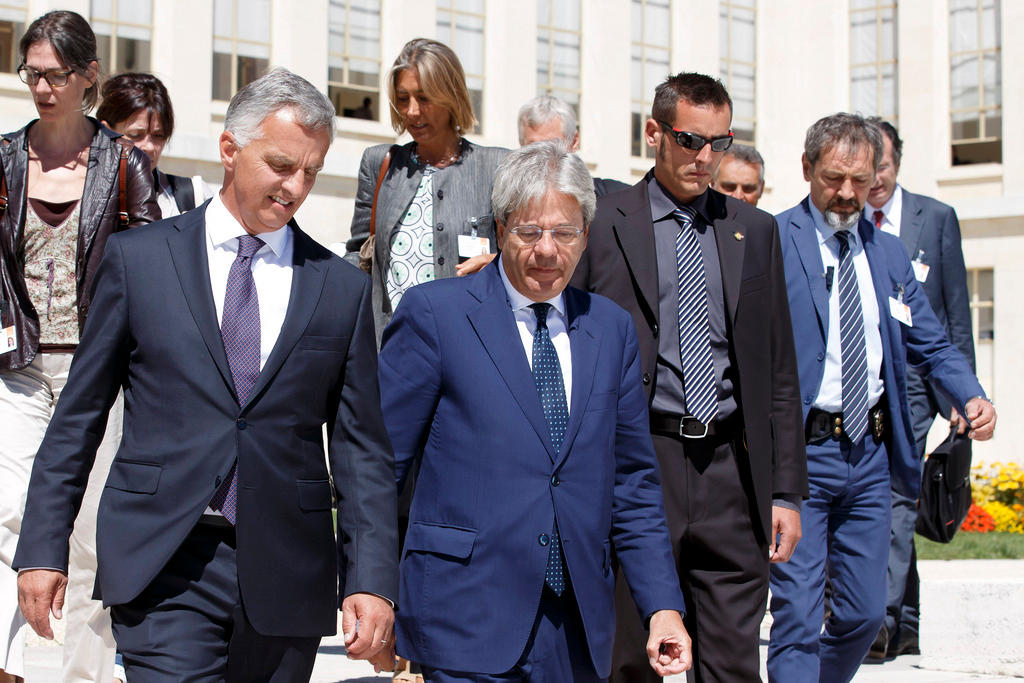
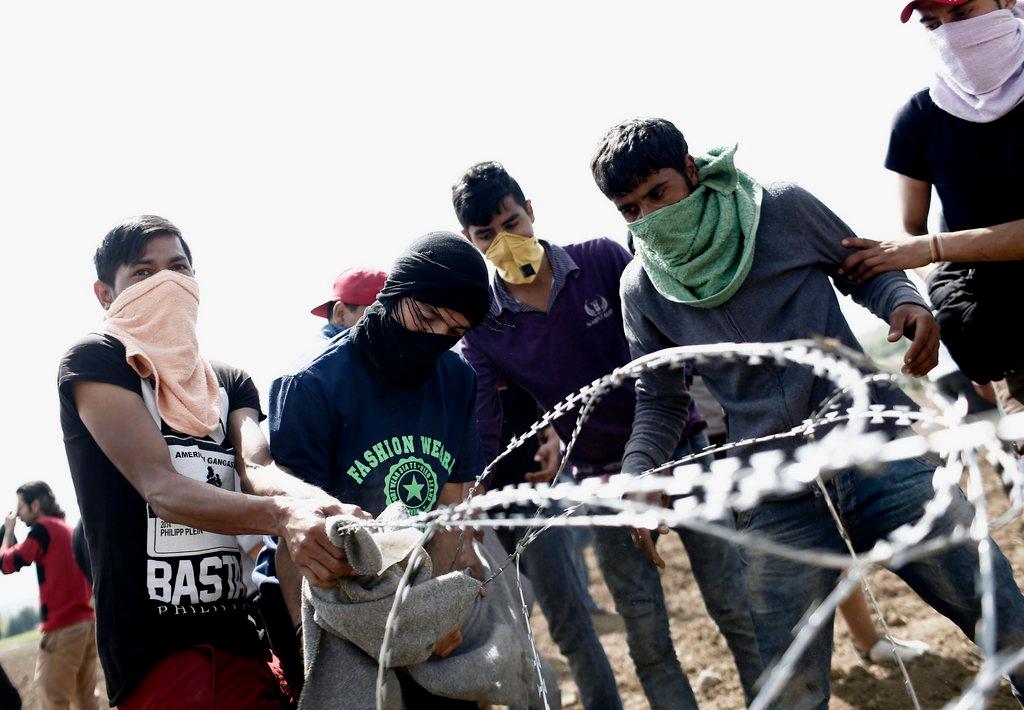
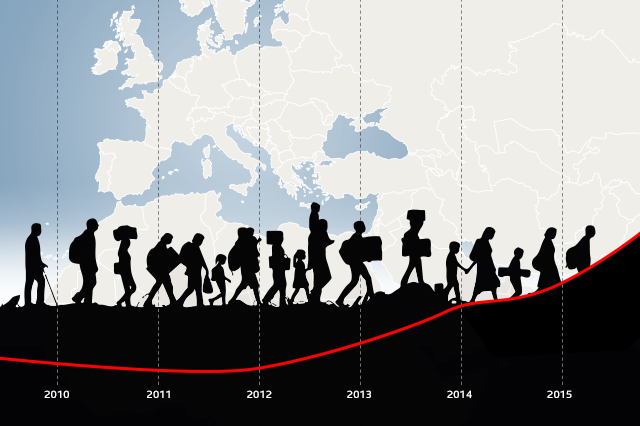
You can find an overview of ongoing debates with our journalists here. Please join us!
If you want to start a conversation about a topic raised in this article or want to report factual errors, email us at english@swissinfo.ch.